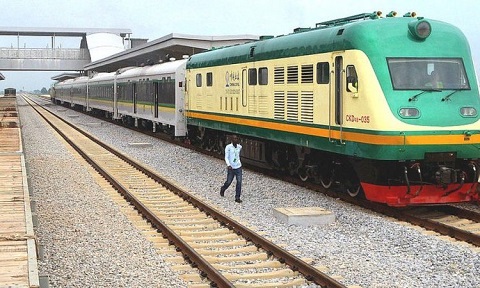NEWS XTRA

ABUJA–KADUNA TRAIN BREAKS DOWN MID-JOURNEY, PASSENGERS FORCED TO RETURN TO KADUNA
Passengers on the Abuja–Kaduna corridor were left stranded on Thursday after a train developed a mechanical fault less than an hour into its trip, forcing it to abort the journey and return to Kaduna for repairs.
The train, which departed Rigasa station shortly after 2 p.m., reportedly halted midway before unexpectedly reversing back toward Kaduna. Many passengers said they were confused and frightened as no immediate explanation was given.
One passenger, who spoke to Leadership on condition of anonymity, described the moment the train stopped:
“We didn’t understand what happened. The train suddenly started reversing back to Kaduna after stopping for a while.”
A staff member of the Nigerian Railway Corporation (NRC) in Kaduna later confirmed that the train experienced a technical failure on the track and had to return for maintenance.
“The train left for the 2 p.m. schedule but encountered problems on the road and had to return to Kaduna for repairs,” the NRC official said.
The breakdown left dozens of Abuja-bound passengers stuck at the Kaduna station, waiting anxiously for updates. While some passengers hoped the issue would be fixed quickly, others, frustrated by the delay, reportedly gave up and went home.
This latest disruption comes just four days after another rail incident — a Warri–Itakpe train derailed in Adogo, Ajaokuta Local Government Area of Kogi State. The Kogi Police Command had to rescue stranded passengers after the derailment left them stuck for several hours.
Confirming that incident on Sunday, the state Police PRO, CSP William Ovye-Aya, said all passengers were safely evacuated to the Ajaokuta station before being assisted to continue their journey. He noted that there were no casualties.
The recurring rail issues have renewed concerns among Nigerians about the safety and reliability of the country’s railway system, especially on major routes like Abuja–Kaduna.
"This represents a significant development in our ongoing coverage of current events."— Editorial Board









